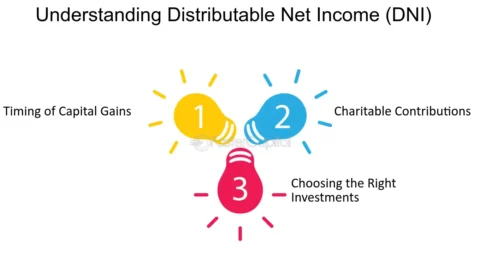The Commissioner of Income Tax is a high-ranking official in the income tax department responsible for overseeing the administration, assessment, and collection of taxes within a specified jurisdiction. The role is critical in ensuring that tax laws are applied correctly and that revenue is efficiently collected to support government services. In this blog post, we will explore the functions, responsibilities, and significance of the Commissioner of Income Tax, as well as address frequently asked questions about this important position.
What is the Commissioner of Income Tax?
The Commissioner of Income Tax is an official who holds a senior position within the income tax department of a country, typically overseeing multiple income tax officers and assessing officers. The primary role of the Commissioner is to ensure that tax policies and laws are implemented effectively, taxpayers are compliant, and that income tax returns are assessed fairly.
This position is vital to maintaining an efficient tax system that funds public services and contributes to the country’s economic stability. The Commissioner has the authority to make important decisions regarding tax assessments, appeals, and the interpretation of tax laws.
Key Responsibilities of the Commissioner of Income Tax
Assessment of Taxes: The Commissioner oversees the assessment of income tax for individuals, corporations, and other entities within their jurisdiction. This includes ensuring accurate tax calculations and verifying income tax returns.
Handling Appeals: If a taxpayer disagrees with the assessment made by an income tax officer, they can appeal to the Commissioner of Income Tax. The Commissioner has the authority to review these appeals and make decisions based on the evidence provided.
Monitoring Compliance: The Commissioner ensures that taxpayers are compliant with income tax regulations. This includes overseeing audits, scrutinizing tax returns, and identifying cases of non-compliance or tax evasion.
Collection of Taxes: The Commissioner plays a crucial role in the collection of taxes, ensuring that all dues are paid in a timely manner and taking necessary action in cases of default.
Enforcement and Penalties: The Commissioner has the authority to impose penalties on taxpayers who do not comply with tax laws or who are found guilty of tax evasion. This enforcement role is key to maintaining the integrity of the tax system.
Guidance and Interpretation: The Commissioner provides guidance on the interpretation of tax laws and helps clarify complex tax issues. This ensures that taxpayers and tax officials alike understand their obligations and rights.
Significance of the Commissioner of Income Tax
Efficient Tax Administration: The Commissioner of Income Tax is vital to the smooth functioning of the tax system, ensuring that taxes are assessed and collected efficiently.
Revenue Generation: By overseeing the collection of taxes, the Commissioner contributes to the revenue required for public welfare, infrastructure, and essential services.
Ensuring Fairness: The Commissioner ensures that taxpayers are treated fairly, and tax laws are implemented uniformly. This helps in maintaining public confidence in the tax system.
Handling Disputes: Tax disputes are common, and the Commissioner plays a critical role in resolving these disputes, ensuring that the interests of both taxpayers and the government are protected.
How to Contact the Commissioner of Income Tax
If you need to contact the Commissioner of Income Tax, it is generally done through formal channels within the income tax department. This might include submitting an appeal, a complaint, or a request for clarification on tax matters. The contact details are typically available on the official website of the income tax department.
Frequently Asked Questions about the Commissioner of Income Tax
Q1: What is the role of the Commissioner of Income Tax?
The Commissioner of Income Tax is responsible for overseeing tax assessments, ensuring compliance with tax laws, handling appeals, and collecting taxes. They play a crucial role in implementing tax laws effectively and fairly.
Q2: How does the Commissioner of Income Tax handle appeals?
If a taxpayer disagrees with a tax assessment, they can file an appeal to the Commissioner. The Commissioner reviews the case, examines the evidence, and makes a decision based on tax laws.
Q3: Can the Commissioner of Income Tax impose penalties?
Yes, the Commissioner of Income Tax has the authority to impose penalties on taxpayers who fail to comply with tax laws or are found guilty of tax evasion.
Q4: How does the Commissioner contribute to tax compliance?
The Commissioner ensures tax compliance by monitoring tax filings, conducting audits, scrutinizing returns, and taking action against non-compliance or tax evasion.
Q5: What is the difference between the Commissioner of Income Tax and an Income Tax Officer?
An Income Tax Officer handles the day-to-day assessment of individual tax returns, while the Commissioner of Income Tax oversees a broader range of responsibilities, including managing income tax officers, handling appeals, and making important decisions regarding tax assessments.
Q6: How does one become a Commissioner of Income Tax?
To become a Commissioner of Income Tax, individuals typically start their career in the income tax department as an income tax officer, often through a competitive examination. With experience and promotions, they can eventually rise to the position of Commissioner.
Q7: What powers does the Commissioner of Income Tax have?
The Commissioner of Income Tax has the power to assess taxes, review appeals, impose penalties, conduct audits, and interpret tax laws to ensure compliance and fairness in tax administration.
Q8: Is the Commissioner of Income Tax involved in tax audits?
Yes, the Commissioner oversees tax audits conducted within their jurisdiction to ensure compliance and detect cases of underreporting or tax evasion.
Q9: How does the Commissioner ensure fair treatment of taxpayers?
The Commissioner ensures fair treatment by applying tax laws uniformly, addressing disputes through a fair appeals process, and providing guidance on complex tax issues to prevent misunderstandings.
Q10: Can taxpayers directly approach the Commissioner of Income Tax?
Taxpayers can approach the Commissioner of Income Tax through formal channels, such as filing an appeal or submitting a request for clarification. Direct contact may not always be possible without going through the proper procedures.
Conclusion
The Commissioner of Income Tax is a key figure in the administration and enforcement of tax laws. Their role is essential for ensuring compliance, resolving disputes, and maintaining an efficient and fair tax system. By understanding the responsibilities of the Commissioner, taxpayers can better navigate the complexities of the tax system and understand their rights and obligations.


